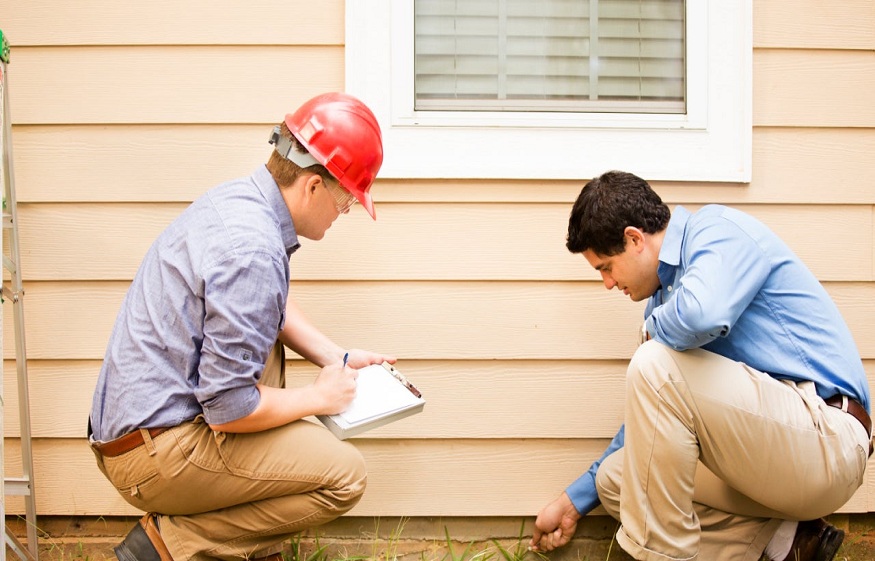When shopping for a property, you often have a well-defined budget, and the pre-purchase home inspection can represent an additional expense. Many future owners hesitate to have their potential property inspected for this reason. However, the inspection is not an expense: it is an investment in your peace of mind and it can save you a lot of unpleasant surprises!
Your moving list is getting longer and you wouldn’t say no to a helping hand? Discover our free tools for your move.
A cheat sheet that does the work for you .
Even if the inspection is not mandatory in Quebec when buying a property (house, condo, chalet, duplex, triplex, etc.), it is strongly recommended. It is used to establish the condition of the property and to detect current or potential problems in the components of the building. The inspector is interested in accessible and visible components: plumbing, heating, roofing, structure, air conditioning, electricity, insulation as well as the interior and exterior of the building. It should be noted that the inspector does not open walls or roofs; he only does a visual inspection.
The visit of the building inspector lasts an average of 2 to 3 hours and includes the taking of photos for the purposes of the report. This written report details the defects noted which may affect the enjoyment of the premises, their use or even the value of the property, as well as an analysis of the main elements and recommendations (change the roof in 5 years, risk of a leak in the room bath, etc).
How much does an inspection cost?
Prices for a pre-purchase inspection vary depending on the type of property. In Quebec, the inspection of a single-family home costs between $450 and $560 plus taxes on average. For a condo, the fees are between $300 and $425. For a duplex, triplex or more, the amount can go from $650 to $800 or more for a multiplex.
Who can do an inspection?
The answer may surprise you, but there is no official training for building inspection. However, specialists such as building engineers, architects or technologists offer the service and are supervised by their professional order.
It is important to obtain good references for an inspector and to have confirmation that he holds professional liability insurance (errors and omissions). Some associations, such as the Association of Building Inspectors of Quebec (AIBQ), InterNACHI Quebec AIIICQ, the Canadian Association of Home and Property Inspectors of Canada (ACIBI) and the Corporation of Property Quality Inspectors (CIVQP), bring together members on a voluntary basis.
6 reasons to carry out an inspection of your future property
1. To complete the seller’s declaration
The seller of the property usually gives the buyer a Declaration of the seller of the building, in which he details everything he knows about the history of his property and its current condition. The seller lists there, among other things, if there was water damage, if the roof was redone, when the water heater was changed, etc.
However, this statement is only limited to what the seller knows about his home. An inspection makes it possible to better understand the condition of the property and to detect elements of which the seller would not even be aware. You cannot rely solely on the seller’s declaration, even if it seems to you to be in good faith: the houses hide many secrets that an inspector can discover, and thus give you a more accurate picture!
2. To better estimate the costs when buying a condo
Since the condo, whether divided or undivided, includes common portions, some work must be financed by all the owners. If you are looking to buy a condo, an inspection of both the private portion and the common areas will give you a good idea of the expenses that should be expected in the years to come, if work has to be done on the common areas. This will also allow you to obtain more information from the syndicate of co-ownership regarding the cost forecast (contingent fund) and the schedule for such work.
3. To lift the veil on possible hidden defects
A latent defect constitutes a defect in a building that is difficult to notice by a prudent and diligent buyer and that is such that this buyer would not have bought this building or that he would not have given this price knowingly. In addition, you should know that the owners are not necessarily in bad faith: hidden defects can take years to appear and come from a construction error or a design defect.
The pre-purchase inspection can help identify signs of potential defects, such as water infiltration, the most common defect in a home. Even if the inspection only concerns what is visible, a good inspector knows where and what to look for, better than even an experienced buyer. It will not necessarily detect hidden defects, but will be able to identify problematic elements, such as a weakness in the structure, visible cracks, dark circles or humidity, which are signs that do not lie.
In addition, the fact of having carried out an inspection will show the judge, in the event of a possible dispute, that you have acted as a prudent and diligent buyer, although this is not mandatory.
4. To better estimate the cost of maintenance work
This point is particularly important if it is a first purchase. In addition to municipal and school taxes, a house requires maintenance work that is the responsibility of the owner, which is not the case with the rental of an apartment. The inspection report for the property you want will help you list the urgent works and those that can wait. You can stretch the life of windows by a few years, but the installation of a French drain is often urgent!
5. To knowingly buy a property sold without legal warranty
A house sold without legal warranty means that the seller cannot be held responsible for defects, unless he knowingly omitted to disclose such a defect to you. The exclusion of the legal warranty is usually made during a repossession or a succession, when the seller does not know the history of the house. In such cases, even if a house without legal warranty does not necessarily mean that it is in poor condition, an inspection becomes all the more important in order to have an accurate picture of the condition of the building and to better establish the property value.
6. To have arguments in the negotiation of the sale price
Finally, if the inspection reveals significant work to be done, then you may have the option of asking the seller to do the work before the purchase, or else trying to negotiate a lower price in order to absorb the cost of such work. If you were looking for a turnkey property, but the plumbing and electrics need to be redone, this will be an opportunity to think about what you want to do. If your offer to purchase is conditional on the inspection, then you may have a way out.
In conclusion
If you consider a property inspection as an investment rather than an expense, you will better see all the benefits it can bring you. Although it is not mandatory, a pre-purchase inspection carried out by an expert is always a good idea, whether you are buying your first property or you are an experienced owner. Your insurer could also ask you for the inspection report in order to obtain certain information such as the dimensions of the buildings, the renovation dates, the type of plumbing, etc.
Once you are satisfied with the inspection report and the purchase offer is accepted, all you have to do is go to the notary and plan your move and change of address !

